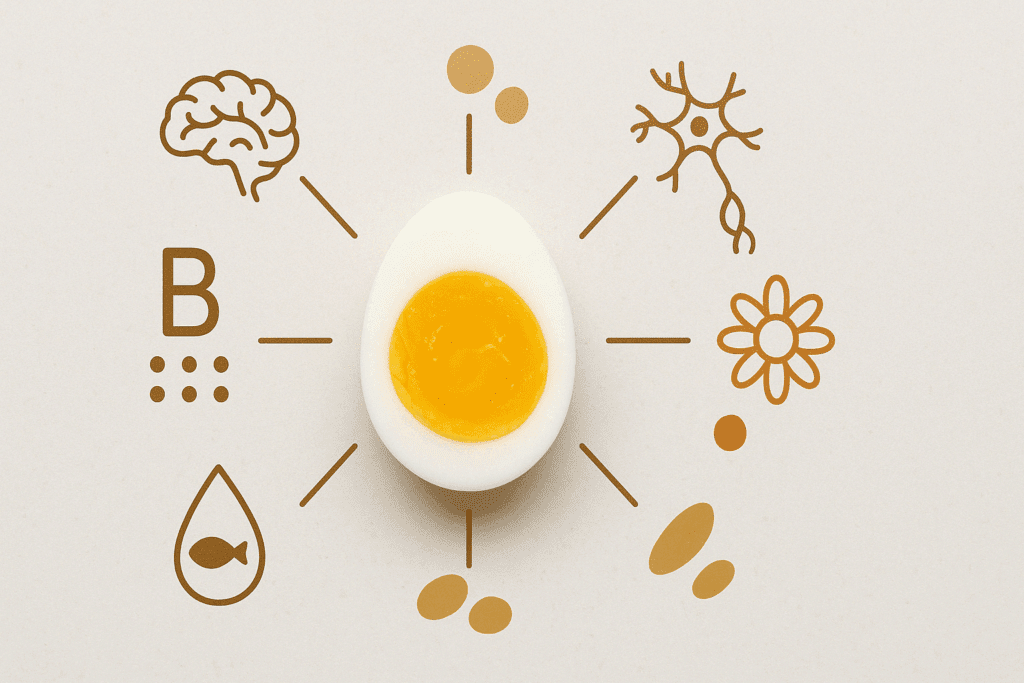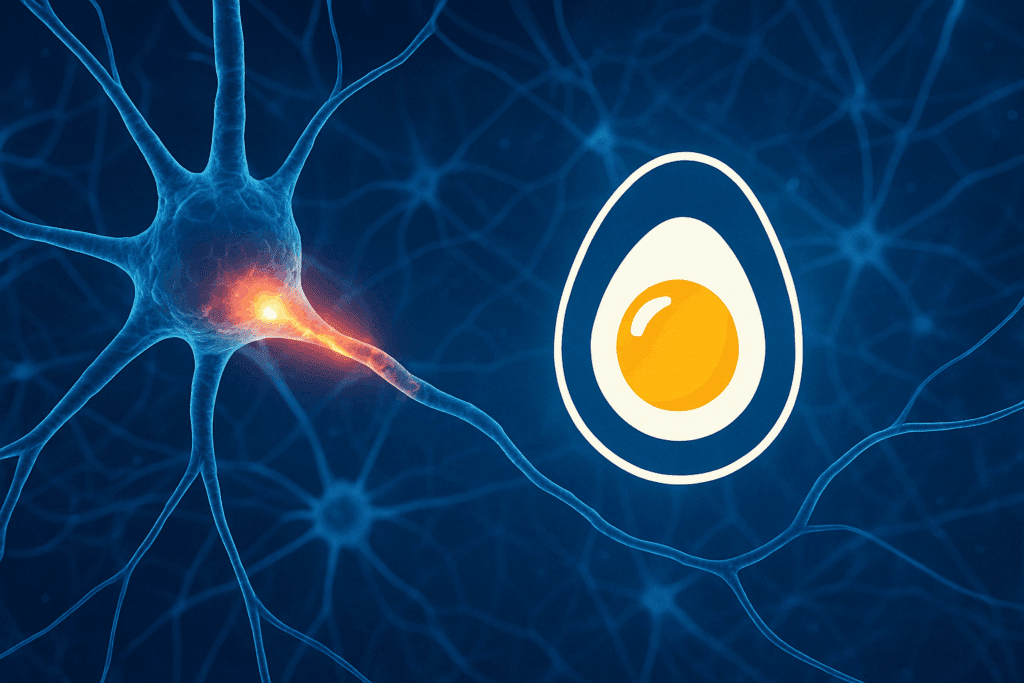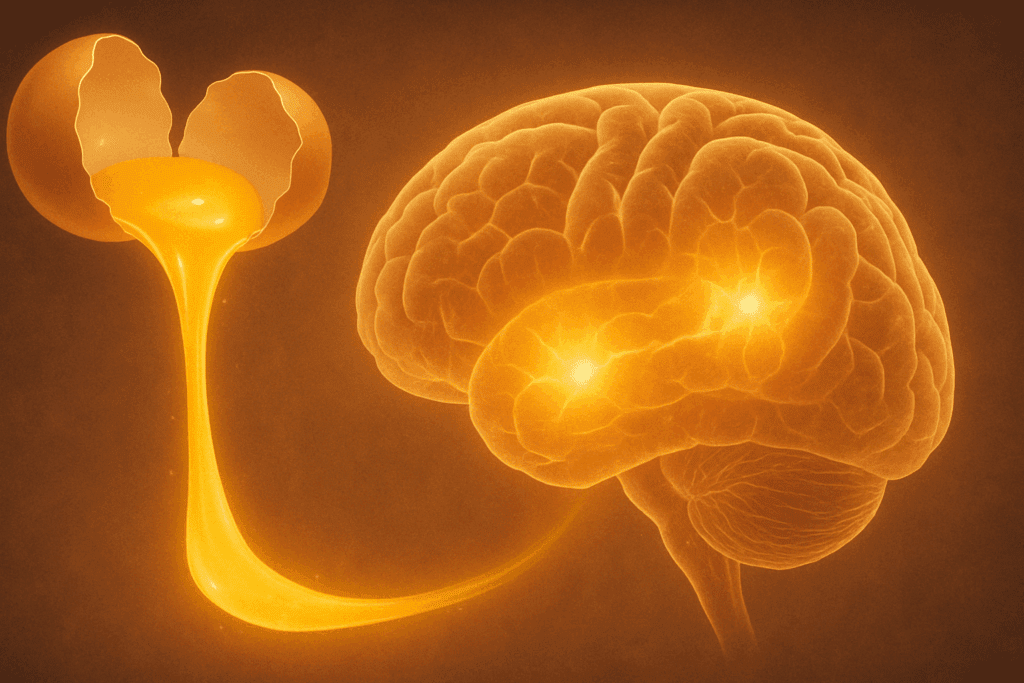Understanding the Role of Nutrition in Cognitive Function
The relationship between nutrition and brain health has long intrigued scientists, clinicians, and individuals seeking to preserve their mental sharpness. In recent years, public interest has increasingly turned toward functional foods—everyday items that offer benefits beyond basic nutrition. Among these, eggs have captured considerable attention, particularly for their reputed ability to support memory, attention span, and cognitive longevity. But do these claims withstand scientific scrutiny? Are eggs good for your brain, or is this idea another nutritional myth dressed in cholesterol-laden disguise?
You may also like: How to Choose the Best Brain Supplements for Adults: Science-Backed Ingredients That Support Focus, Memory, and Mental Clarity
This question holds particular importance for aging populations and those seeking natural nootropics to improve decision-making, enhance mental clarity, and slow cognitive decline. The brain, comprising approximately 60% fat and demanding nearly 20% of the body’s energy resources, requires a steady intake of essential nutrients to maintain peak performance. As research advances, certain components in food—like choline, lutein, and omega-3 fatty acids—are now recognized for their pivotal roles in brain development and preservation.
Among the most nutritionally dense and bioavailable foods, eggs stand out as an affordable, protein-rich, and versatile option. For those exploring the science behind memory-boosting diets, the link between eggs and brain function is more than casual—it’s foundational. Whether you’re a student, a working professional, or a senior seeking mental longevity, understanding how eggs support brain health can empower smarter dietary decisions and inform a broader strategy for cognitive enhancement.

Breaking Down the Nutritional Profile of Eggs
At first glance, eggs may seem deceptively simple: a shell, a yolk, and some translucent whites. But delve deeper, and you’ll discover a nutritional matrix perfectly engineered by nature to support growth, development, and yes—brain performance. A single large egg contains about 6 grams of high-quality protein, essential amino acids, and more than a dozen vitamins and minerals. Yet the real stars, when it comes to the brain, are compounds like choline, lutein, and vitamin B12.
Choline is a precursor to acetylcholine, a neurotransmitter essential for memory formation, muscle control, and overall cognitive function. The yolk of a single egg provides roughly 147 milligrams of choline, covering more than a quarter of the recommended daily intake. Eggs and brain health are closely linked through this vital nutrient, especially since many adults fall short of the choline intake necessary for optimal neurological function.
Another often-overlooked nutrient in eggs is lutein—a carotenoid more commonly associated with eye health but also found in brain tissue. Lutein is believed to play a protective role by reducing oxidative stress and inflammation in neural circuits. Emerging evidence suggests it may enhance processing speed and working memory, making it a potential ally in both decision-making optimization and long-term cognitive resilience.
Meanwhile, B vitamins—especially B6, B12, and folate—help regulate homocysteine levels, an amino acid that, when elevated, is associated with increased risk of Alzheimer’s and cognitive decline. Eggs provide a steady supply of B12, which is particularly important for seniors, as deficiencies are common with age and can contribute to memory loss or confusion. This makes the question “Are eggs good for senior brains?” not only reasonable but essential in any discussion around dietary strategies for aging well.
Choline: The Unsung Hero of Cognitive Performance
Choline is perhaps the most compelling link between eggs and brain health. While many people are familiar with omega-3 fatty acids and antioxidants for brain function, choline often goes unnoticed despite being critical to the synthesis of acetylcholine. This neurotransmitter is heavily involved in learning, memory encoding, and focus regulation. Without adequate choline, the brain’s ability to form and retrieve memories becomes compromised.
Are eggs good brain food? When viewed through the lens of choline content, the answer is unequivocally yes. Most brain-boosting supplements include synthetic choline sources such as citicoline or alpha-GPC, but the naturally occurring form in eggs is both effective and bioavailable. Regular consumption of eggs helps build a dietary foundation for neurotransmitter stability, particularly for individuals facing high cognitive demands.
There’s also a developmental aspect to consider. During pregnancy, choline is crucial for fetal brain development. Adequate intake supports neural tube closure, hippocampal development, and lifelong cognitive potential. While prenatal supplements exist, incorporating choline-rich foods like eggs into a mother’s diet can offer a more holistic and consistent nutrient source. This illustrates how the synergy between eggs and brain function begins early in life and extends well into adulthood.
For adults and seniors, this nutrient may be a key ally in staving off cognitive decline. Although the question “do eggs fight memory loss?” requires nuanced interpretation, studies show a correlation between higher choline intake and better memory performance in older adults. While causation hasn’t been conclusively established, the association is strong enough to warrant practical dietary attention.

Lutein’s Protective Role in Cognitive Aging
Lutein, a yellow pigment responsible for the golden hue of egg yolks, is another nutrient garnering attention for its neuroprotective properties. For years, its benefits were largely confined to discussions around macular degeneration and eye health, but researchers are now uncovering its significance in the central nervous system. Lutein accumulates in the brain, especially in regions responsible for cognitive processing, decision-making, and memory consolidation.
In studies comparing dietary patterns with cognitive outcomes, individuals with higher lutein levels consistently perform better on memory and verbal fluency tasks. This is particularly true in aging populations, suggesting that eggs are good for senior brains not only due to their choline and B vitamin content but also because of lutein. The compound appears to modulate inflammation and oxidative stress—two biological processes closely tied to neurodegenerative diseases such as Alzheimer’s.
Moreover, lutein’s synergistic relationship with other nutrients in eggs—like zeaxanthin, vitamin D, and omega-3s—creates a multi-pronged defense against cognitive wear-and-tear. When consumed regularly, eggs serve as a low-cost, accessible way to increase lutein intake without requiring expensive supplements or exotic superfoods. This makes them an ideal candidate for long-term dietary planning aimed at cognitive enhancement.
Eggs, Memory, and the Aging Brain
As people age, cognitive decline often becomes one of the most feared aspects of growing older. While some degree of memory degradation is natural, accelerated loss of cognitive function can severely impact quality of life, independence, and emotional well-being. For these reasons, the conversation around whether eggs are good for memory becomes particularly relevant.
Eggs contain a blend of brain-enhancing compounds that support both short-term cognitive performance and long-term neural resilience. Choline boosts neurotransmitter synthesis, lutein combats oxidative stress, and B12 keeps neurological signaling pathways intact. Together, these nutrients help slow the biological processes underlying memory decay. Are eggs good for brain health in older adults? A growing body of evidence suggests that they can be, especially when part of a balanced diet rich in fruits, vegetables, and whole grains.
In a 2017 study published in the American Journal of Clinical Nutrition, researchers found that higher egg consumption was associated with improved performance on neuropsychological tests among older adults. The findings aligned with the theory that eggs fight memory loss not in isolation but as part of a nutrient-dense dietary pattern. These results also indicate that the concern some have—wondering “are eggs bad for memory?”—lacks empirical backing, at least when eggs are consumed in moderation.
Rather than fearing cholesterol, seniors may benefit from embracing eggs as an easy-to-prepare, nutrient-rich food that delivers consistent cognitive support. Whether scrambled, poached, or hard-boiled, eggs offer a brain-friendly meal option that aligns well with both preventive health strategies and culinary enjoyment.
Dispelling the Cholesterol Myth
For decades, eggs were maligned due to their cholesterol content, with many health authorities recommending strict limits on their consumption. This led to widespread avoidance, particularly among older adults concerned about heart health. However, contemporary research has largely exonerated dietary cholesterol as a primary contributor to elevated blood cholesterol levels. In fact, for most people, saturated fat—not dietary cholesterol—is the greater concern when it comes to heart disease risk.
Understanding this shift is critical for evaluating whether eggs and brain health are compatible. If the cognitive benefits of eggs are overshadowed by cardiovascular risks, then their role in brain-focused nutrition would be compromised. But the latest guidelines from the American Heart Association and other authoritative bodies indicate that eggs can be part of a heart-healthy diet for the majority of the population.
Additionally, emerging evidence suggests that certain dietary fats—such as those found in egg yolks—may actually support brain integrity. Phospholipids, for instance, are essential for cell membrane structure and neuron signaling. By offering a rich source of healthy fats alongside critical nutrients, eggs make a compelling case for inclusion in diets aiming to optimize both cardiovascular and neurological well-being.
This reframing helps clarify why eggs are good for brain health in practical terms. They are not only safe for most individuals but also actively contribute to cognitive preservation. With moderation and context, eggs serve as a valuable addition to dietary strategies that promote longevity and mental clarity.

How Eggs Enhance Decision-Making and Focus
Beyond supporting memory and preventing decline, eggs may also play a subtle but impactful role in sharpening decision-making and improving focus. These cognitive abilities rely on efficient communication between neurons, rapid information processing, and sustained mental energy. The nutrients in eggs support these processes through multiple pathways.
Choline ensures the brain has a steady supply of acetylcholine, which enhances synaptic plasticity—the ability of neurons to form and reform connections based on new information. This adaptability is essential for real-time decision-making, especially in high-pressure or information-rich environments. At the same time, B vitamins help convert food into usable energy, reducing brain fog and supporting sustained concentration throughout the day.
Omega-3 fatty acids, particularly DHA, are often touted for their anti-inflammatory effects and structural roles in brain development. While eggs are not the richest source of DHA, omega-3-enriched eggs offer an added cognitive advantage. These fortified varieties amplify the benefits already present in standard eggs, giving individuals an option tailored toward nootropic performance.
So, are eggs good for your brain when you need to stay focused at work, perform in high-stakes situations, or make rapid decisions? Absolutely. When integrated into a nutrient-rich breakfast or midday snack, eggs provide steady energy, clarity, and composure—essential traits for anyone pursuing decision-making optimization in daily life.
Debunking the Myth: Are Eggs Bad for Memory?
Despite their scientifically backed benefits, some individuals still question, “Are eggs bad for memory?” This doubt often stems from outdated nutritional theories or misconceptions around cholesterol and brain fog. In truth, no substantial evidence suggests that moderate egg consumption impairs memory or cognitive function. On the contrary, several longitudinal studies have identified neutral or even positive associations between egg intake and cognitive health.
One source of confusion may be the mistaken belief that dietary cholesterol impedes blood flow to the brain, thus impairing memory. While vascular health is undoubtedly tied to cognitive performance, dietary cholesterol has not been shown to significantly affect cerebral circulation in the way once feared. Additionally, the brain itself requires cholesterol to form synapses and myelin sheaths—structures essential for neural communication.
Understanding this helps counteract lingering fears and reinforces the conclusion that eggs are not detrimental to brain performance. Rather than impairing memory, they nourish the structures and biochemical pathways necessary for its function. The idea that eggs are bad for memory appears to be more myth than fact—a narrative in need of reevaluation based on current scientific understanding.

Frequently Asked Questions: Eggs and Brain Health
1. Can eating eggs daily improve long-term memory retention?
Yes, moderate daily egg consumption may support long-term memory, particularly when paired with a balanced diet. Eggs contain choline, a nutrient vital for producing acetylcholine—a neurotransmitter linked to memory and learning. While the original article may touch on memory enhancement, new research also shows that older adults with higher choline intake tend to perform better on memory recall tests. This suggests that eggs and brain longevity might be closely linked, especially in age-related memory decline. Incorporating eggs into breakfast routines may serve as a preventative strategy for age-related cognitive decline rather than a reactive remedy.
2. Are eggs good for senior brains dealing with mild cognitive impairment (MCI)?
Emerging research indicates that eggs are good for senior brains, particularly those managing the early stages of cognitive decline. The antioxidants lutein and zeaxanthin in egg yolks accumulate in the brain and eyes, potentially protecting neurons from oxidative stress. Seniors with MCI may benefit from these neuroprotective effects, which help preserve synaptic integrity and brain plasticity. While eggs aren’t a treatment for cognitive disorders, they can serve as a nourishing dietary component to support aging brains. Furthermore, whole eggs provide vitamin B12 and folate, both essential for elderly individuals at risk of cognitive slowdowns.
3. Do eggs fight memory loss caused by stress or poor sleep?
Stress and sleep deprivation are known contributors to short-term memory lapses. While eggs aren’t a cure, their high-quality protein and essential fatty acids may help balance stress-induced hormone fluctuations. The choline content can help regulate mood-related neurotransmitters like dopamine and serotonin, indirectly influencing cognitive performance. So, do eggs fight memory loss? In a nutritional context, yes—they may provide the brain with tools to resist damage from stressors. Combining eggs with sleep hygiene and mindfulness practices could yield even greater protective effects against memory loss.
4. Are eggs bad for memory in people with cholesterol concerns?
There has been longstanding debate about cholesterol’s impact on brain health. However, recent studies differentiate between dietary cholesterol and blood cholesterol levels. Moderate egg intake—around one per day—has not been conclusively linked to memory decline. On the contrary, the brain requires cholesterol to form synapses and support neural communication. So, are eggs bad for memory? Not when consumed in moderation as part of a nutrient-dense diet. For individuals with high cardiovascular risk, consulting a healthcare provider before increasing egg intake is advisable.
5. How do eggs compare to other brain foods like walnuts or blueberries?
While walnuts provide omega-3s and blueberries offer polyphenols, eggs are good brain food because they offer a unique nutritional profile. They contain bioavailable choline, which isn’t abundant in most fruits or vegetables. Unlike plant-based brain foods, eggs also provide complete proteins that help maintain neurotransmitter synthesis and mental stamina. Including a combination of eggs, nuts, and berries creates a synergistic approach to brain nutrition that supports memory, focus, and mood balance. Therefore, eggs and brain health are part of a broader dietary strategy, not an isolated solution.

6. Are eggs good for memory in students or young adults?
Yes, the cognitive benefits of eggs are not limited to older adults. For students and professionals under cognitive load, eggs are good for memory due to their ability to enhance mental clarity and focus. Choline supports attention span and information retention, which is crucial during long study or work sessions. Including eggs in a protein-rich breakfast can stabilize blood glucose levels, reducing the likelihood of mental fatigue. This makes eggs brain food particularly valuable during exam periods or high-stress projects.
7. Are there any brain health risks from eating too many eggs?
Consuming large quantities of eggs—especially without dietary balance—could have downsides. While eggs are good for brain health, excessive intake might contribute to high saturated fat or sodium levels, depending on preparation. It’s important to consider portion control and food synergy. For instance, pairing eggs with vegetables and whole grains offers better cognitive support than consuming eggs with processed meats or refined carbs. A medically supervised diet plan ensures you reap the brain benefits of eggs without unintended cardiovascular effects.
8. How does choline in eggs support neurological resilience?
Choline is critical in maintaining the structure of cell membranes and enabling neurotransmission. In neurological terms, it aids in repairing damaged neurons and supporting new synapse formation. This can be especially beneficial for individuals recovering from brain injuries or those prone to neurodegenerative disorders. Since eggs are one of the richest natural sources of choline, they offer an efficient and accessible way to strengthen neurological function. The relationship between eggs and brain health is rooted in this neurochemical support system.
9. Are eggs good brain food for people with ADHD or focus difficulties?
While eggs are not a treatment for attention disorders, they can support focus by stabilizing energy levels and improving neurotransmitter production. Are eggs good brain food for focus? In the context of nutritional support, yes—especially because they help prevent the energy crashes associated with sugary breakfasts. The balance of fats and proteins in eggs supports sustained mental effort. Some individuals with ADHD may benefit from consistent protein intake to avoid impulsive behavior and attention dips, making eggs and brain function a worthwhile area of interest in nutritional therapy.
10. How can vegetarians who avoid eggs still support brain health?
For vegetarians who avoid eggs, it’s crucial to find alternative sources of choline, B12, and complete protein. These nutrients are vital for the same cognitive benefits that make eggs good for brain health. Soy products, quinoa, mushrooms, and fortified nutritional yeast can offer partial substitutes. However, it can be difficult to match the nutrient density of eggs without careful meal planning. For those willing to include eggs in a mostly plant-based diet, even occasional consumption can significantly contribute to brain resilience and memory support.

Final Reflections: Why Eggs Belong in a Brain-Boosting Diet
In a world increasingly filled with synthetic supplements and niche superfoods, the humble egg remains a nutritional powerhouse that supports brain function across the lifespan. From aiding early neural development to enhancing decision-making and preserving memory in later years, eggs offer a versatile and scientifically supported way to nourish the mind. They contain a uniquely balanced profile of choline, lutein, B vitamins, healthy fats, and protein—all essential for cognitive performance.
When asking the question, “Are eggs good for your brain?” the evidence points to a resounding yes. Whether you’re interested in how eggs fight memory loss, support focus, or contribute to cognitive resilience in aging, this everyday food deserves a place in your mental wellness toolkit. As neuroscience continues to explore the intricacies of nutrition and cognition, eggs will likely remain a central character in the narrative of brain-enhancing foods.
Equally important is the understanding that dietary patterns—not individual foods—ultimately shape long-term health outcomes. Including eggs in a balanced, plant-forward diet may amplify their benefits while minimizing any potential risks. For those navigating the challenges of aging, cognitive fatigue, or demanding decision-making environments, eggs offer a practical and accessible solution grounded in both tradition and modern science.
In short, eggs are not only good brain food—they’re also a symbol of how nature elegantly packages cognitive nutrition. For anyone looking to optimize memory, protect brain health, and sharpen focus, eggs provide an evidence-based, delicious, and affordable ally in the journey toward lifelong mental clarity.
Was this article helpful? Don’t let it stop with you. Share it right now with someone who needs to see it—whether it’s a friend, a colleague, or your whole network. And if staying ahead on this topic matters to you, subscribe to this publication for the most up-to-date information. You’ll get the latest insights delivered straight to you—no searching, no missing out.
Further Reading:
Egg intake moderates the rate of memory decline in healthy older adults


